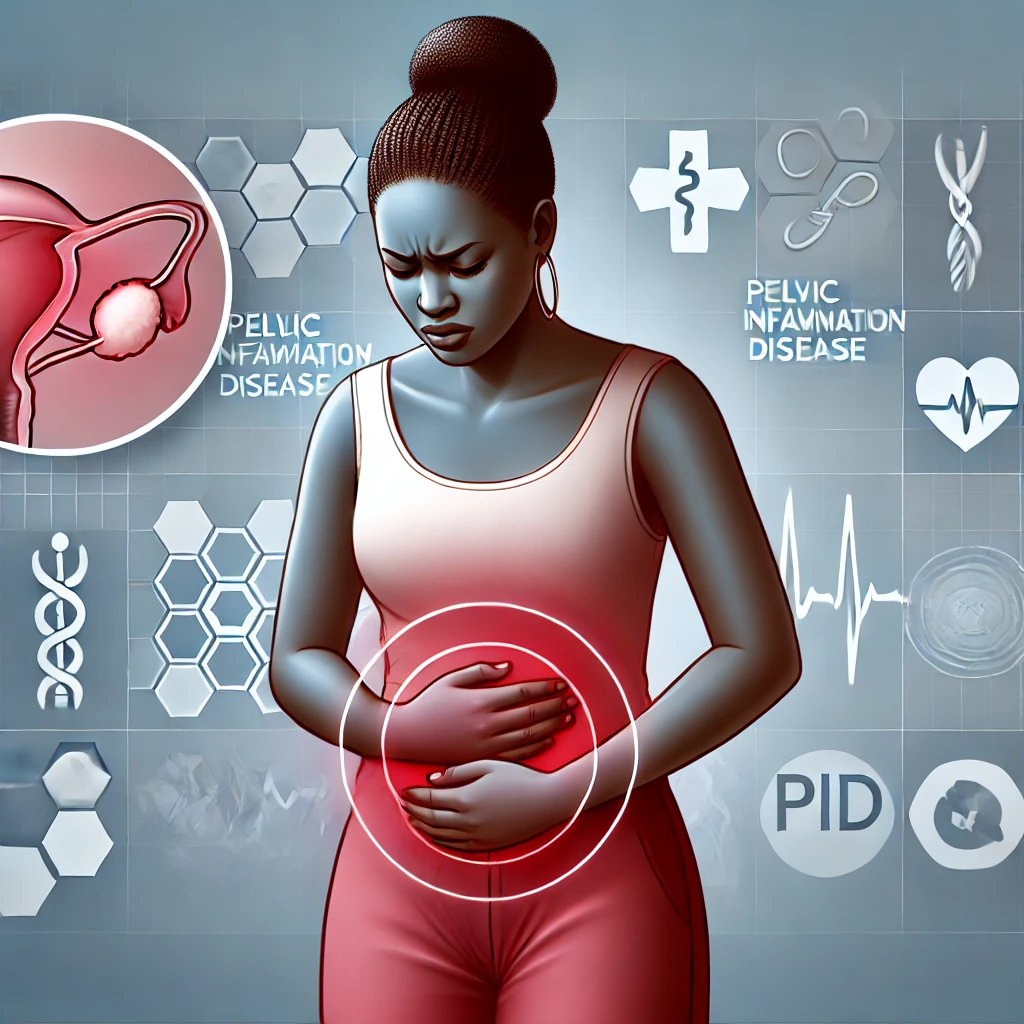Pelvic Inflammatory Disease: Causes, Symptoms, and Treatments
Pelvic Inflammatory Disease (PID) is a serious infection of the female reproductive organs, including the uterus, fallopian tubes, and ovaries. It often results from untreated sexually transmitted infections (STIs) and can lead to severe complications if not promptly diagnosed and treated. Understanding the causes, symptoms, and treatment options for PID is essential for maintaining reproductive health.
Causes of Pelvic Inflammatory Disease
PID usually occurs when bacteria from the vagina or cervix spread to the upper reproductive organs. The most common causes of PID are untreated STIs, particularly chlamydia and gonorrhea. Other bacteria can also cause PID, including those normally found in the vagina. Risk factors for developing PID include:
- Sexual Activity: Having multiple sexual partners or a new sexual partner increases the risk of acquiring STIs, which can lead to PID.
- Douching: This practice can disrupt the natural balance of bacteria in the vagina, making it easier for harmful bacteria to ascend to the reproductive organs.
- History of PID: Women who have had PID before are at a higher risk of developing it again.
- Intrauterine Device (IUD): While the risk is low, inserting an IUD can sometimes introduce bacteria into the reproductive tract, leading to PID.
Symptoms of Pelvic Inflammatory Disease
PID can present a range of symptoms, from mild to severe. Some women may not experience any symptoms at all, making regular check-ups crucial for early detection. Common symptoms of PID include:
- Lower Abdominal Pain: This is the most common symptom and can range from mild to severe.
- Fever: A high temperature may accompany the infection.
- Unusual Vaginal Discharge: The discharge may have an unpleasant odor.
- Painful Intercourse: Pain during sexual activity is a common symptom.
- Painful Urination: Discomfort while urinating can occur if the infection has spread to the urinary tract.
- Irregular Menstrual Bleeding: This can include bleeding between periods or heavy periods.
Diagnosis of Pelvic Inflammatory Disease
Diagnosing PID involves a combination of medical history, physical examinations, and laboratory tests. During a pelvic exam, a healthcare provider will check for tenderness in the reproductive organs. They may also take samples of vaginal and cervical discharge to identify the presence of bacteria. In some cases, additional tests such as ultrasound, endometrial biopsy, or laparoscopy may be needed to confirm the diagnosis and assess the extent of the infection.
Treatment of Pelvic Inflammatory Disease
Early and appropriate treatment of PID is crucial to prevent long-term complications, including chronic pelvic pain, ectopic pregnancy, and infertility. The treatment usually involves:
- Antibiotics: A combination of antibiotics is prescribed to cover a broad range of bacteria. It is essential to complete the entire course of antibiotics, even if symptoms improve, to ensure the infection is fully cleared.
- Hospitalization: In severe cases, hospitalization may be necessary to administer intravenous antibiotics and provide close monitoring.
- Treatment of Sexual Partners: It is vital to inform and treat sexual partners to prevent reinfection and the spread of STIs.
Prevention of Pelvic Inflammatory Disease
Preventing PID primarily involves reducing the risk of STIs and maintaining good reproductive health practices. Effective preventive measures include:
- Practice Safe Sex: Use condoms consistently and correctly to reduce the risk of STIs.
- Regular STI Screenings: Regular screenings and prompt treatment of any detected infections can prevent the development of PID.
- Avoid Douching: Douching can disrupt the natural balance of vaginal bacteria and increase the risk of PID.
- Limit Number of Sexual Partners: Reducing the number of sexual partners lowers the risk of STIs and, consequently, PID.
Consult Virtual Doctors for Professional Advice
If you suspect you have PID or need more information on prevention and treatment, consulting a healthcare professional is essential. The Virtual Doctors App (www.virtualdoctors.ng) offers a convenient and confidential way to seek medical advice from qualified doctors. Through this platform, you can receive timely and accurate information, get prescriptions for necessary medications, and obtain referrals for further testing or treatment.
Pelvic Inflammatory Disease is a serious health condition that requires prompt attention. Understanding the causes, recognizing the symptoms, and seeking timely treatment can prevent severe complications. By practicing safe sex, getting regular STI screenings, and consulting healthcare professionals through platforms like the Virtual Doctors App, women can protect their reproductive health and ensure early intervention when needed. Your health is your most valuable asset—take proactive steps to safeguard it.
Download Virtual Doctors App on Google Play Store now by clicking here and book an appointment with a specialist.
Using iOS or PC? Visit www.virtualdoctors.ng/account to schedule your appointment today.
